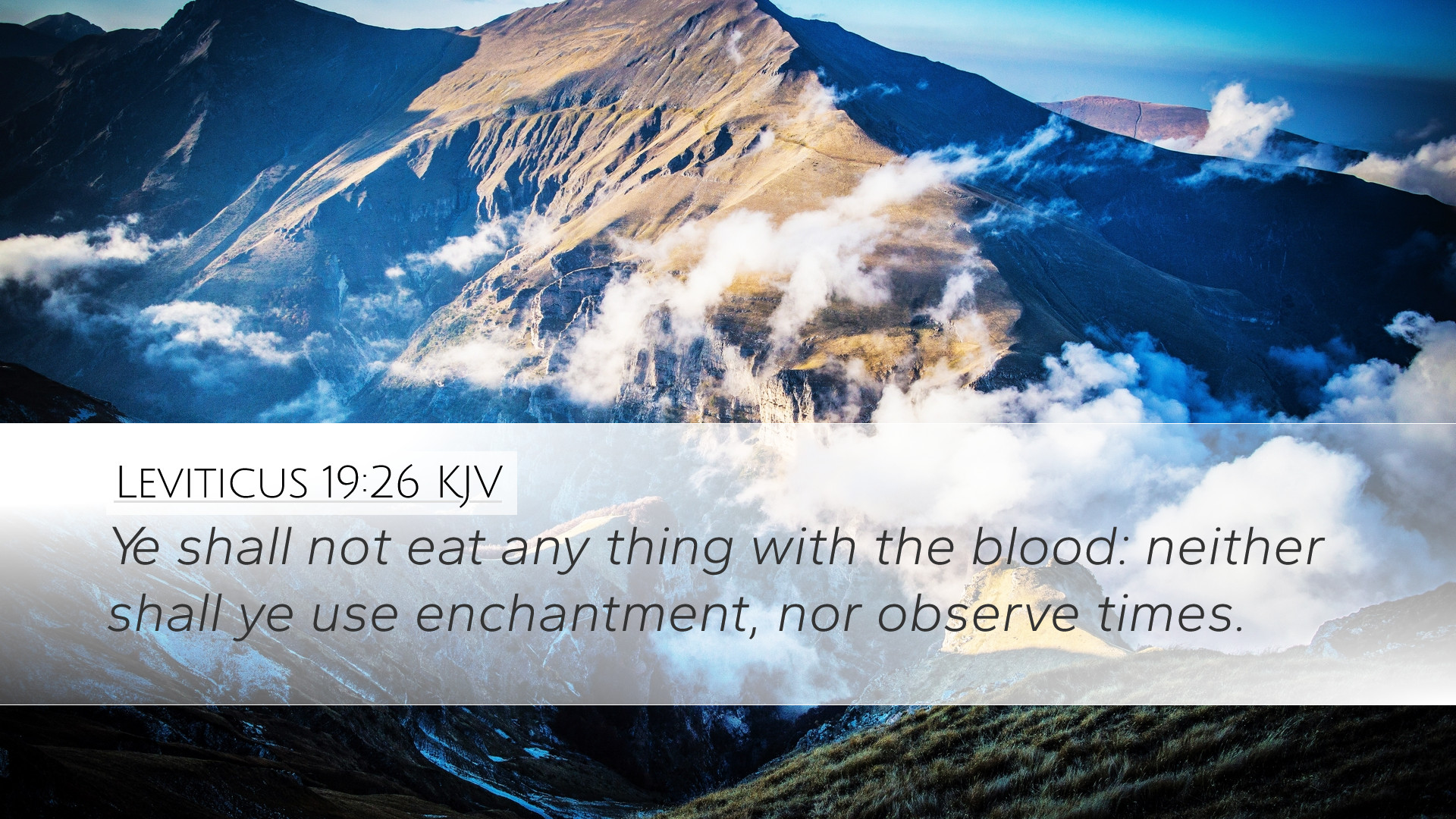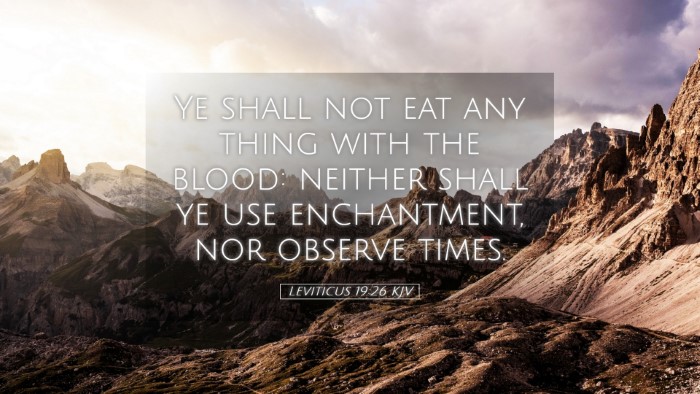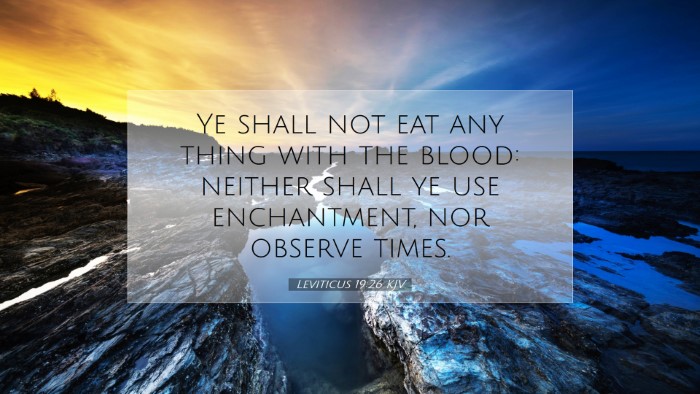Commentary on Leviticus 19:26
Leviticus 19:26 states:
"You shall not eat any flesh with the blood in it. You shall not interpret omens or tell fortunes."
Introduction
This verse encompasses two prohibitions that highlight the distinct lifestyle God demands of His people. The first part pertains to dietary laws, focusing on the consumption of blood, while the second touches upon divination practices common in surrounding cultures. Both issues reflect God's desire for His people to maintain holiness and separation from the practices of the nations around them.
Dietary Laws: The Prohibition of Blood
According to Matthew Henry, the injunction against consuming blood was grounded in the fundamental understanding that blood is sacred, a life-force, representing the life of the flesh:
"The blood is the life seed; therefore, it must not be consumed. It is to be poured out on the ground before the Lord as an atonement."
Albert Barnes expands on this by framing the prohibition in its importance for establishing a unique identity for Israel:
"By forbidding the eating of blood, God created a distinctive moral code for His people that set them apart from other nations, as blood symbolism was central in many pagan rituals."
This dietary restriction served as a reminder of God’s covenant relationship with His people, as well as His ownership over their lives.
Practices of Divination
The second command of the verse prohibits interpreting omens or practicing fortune-telling. Adam Clarke points out:
"This prohibition indicates that the Israelites should rely on God alone for guidance and knowledge, avoiding pagan practices that seek to predict the future."
This call for reliance on divine guidance calls for an orientation toward faith rather than superstition, where trusting in God’s sovereignty is paramount.
Theological Implications
Both prohibitions in Leviticus 19:26 speak to deeper theological themes of holiness and dependence on God. Matthew Henry emphasizes:
"Holiness is not merely the absence of sin but the proactive pursuit of a life aligned with God's will."
The boundary of what is acceptable behavior—and what is not—essentially illustrates the relationship between the sacred and the profane. The children of Israel, by avoiding these practices, were engaging in acts of worship and obedience to God's commands.
Applications for Today
For modern readers, especially pastors and theologians, the principles underlying Leviticus 19:26 are applicable today. The prohibition against blood and divination symbolizes the need for:
- Respect for Life: Understanding the sanctity of life as intended by God.
- Faithfulness in Guidance: Reliance on God's word rather than secular sources for direction in life.
- Holiness: The call for believers to live lives distinguishable and set apart from the world.
In conclusion, Leviticus 19:26 demands that we cultivate a deeper understanding of our spiritual heritage and the continuous pursuit of holiness in our daily lives. As modern believers, we are encouraged to reflect on these ancient commandments and consider how they shape our faith and practice today.


